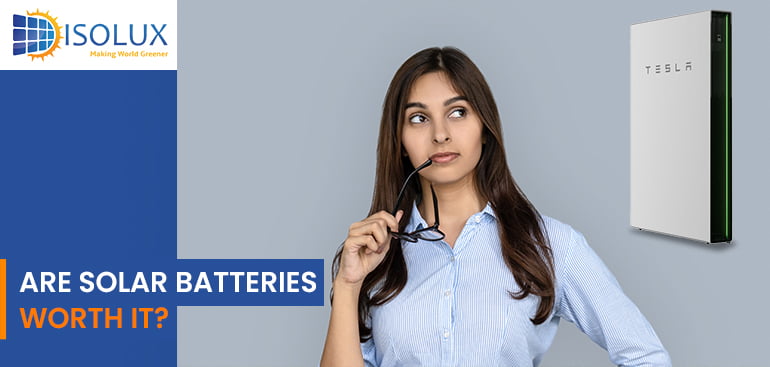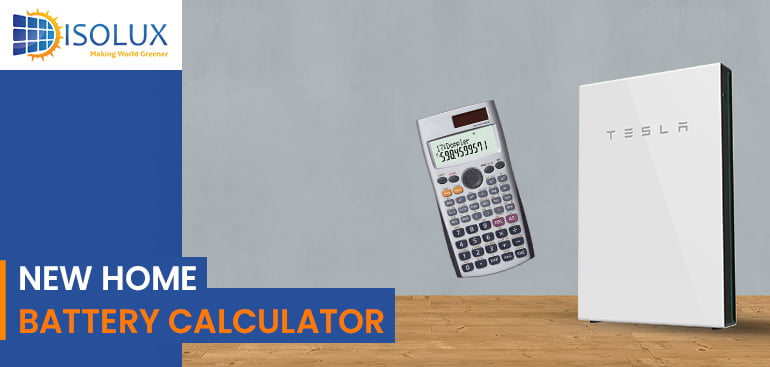Solar batteries, also known as energy storage systems or solar storage batteries, are devices designed to store excess electricity generated by solar panels during periods of sunlight. This stored energy can then be utilized during times when solar panels are not actively producing electricity, such as at night or during cloudy days. The primary goal of solar batteries is to enhance energy independence, increase the self-consumption of solar power, and provide a reliable backup power source during grid outages.
Let’s get into the benefits of solar batteries and how they can help you save money in the long run.
Average Cost of Solar Batteries in Australia (2024)
| Battery Capacity | Average Price Range (AUD) |
|---|---|
| 5 kWh | $4,000 – $6,000 |
| 10 kWh | $9,000 – $12,000 |
| 15 kWh | $13,000 – $17,000 |
Factors Affecting Solar Battery Prices
- Battery Type
- Lithium-ion Batteries: Most common and efficient, with prices ranging between $800 to $1,200 per kWh.
- Lead-acid Batteries: Cheaper but less efficient and require more maintenance.
- Flow Batteries: Longer lifespan but higher upfront costs.
- Installation Costs
Professional solar installation adds approximately $1,000 to $3,000, depending on system complexity and location. - Brand and Warranty
Premium brands like Tesla, Neovolt, and Sonnen tend to be more expensive but offer longer warranties and better performance. - Government Incentives
Many Australian states offer rebates or subsidies, such as the NSW Solar Battery Rebate, which can reduce upfront costs significantly.
State-wise Solar Battery Prices
- Sydney, NSW: $9,000 – $11,000 for a 10 kWh battery.
- Melbourne, VIC: $8,500 – $10,500 (rebates available).
- Brisbane, QLD: $9,200 – $11,500.
- Perth, WA: $8,000 – $10,000.
- Adelaide, SA: $8,500 – $11,000.
Are Solar Batteries Worth the Investment in 2024?
Solar batteries allow Australians to store excess solar energy, reducing dependence on the grid and lowering electricity bills. They’re especially beneficial for areas with frequent power outages or high electricity tariffs during peak hours.
While the upfront cost might seem high, solar batteries offer long-term savings and environmental benefits, making them a valuable addition to your solar setup.
What are Solar Batteries and How Do They Work?
Solar batteries are energy storage systems that allow you to store excess solar energy for use later, such as during times when the sun is not shining or during peak usage hours when electricity rates are highest. By storing solar energy in batteries, you can maximize the amount of self-generated energy you use and minimize your reliance on the grid, ultimately reducing your electricity bills and carbon footprint.
Solar batteries work by storing excess solar energy in chemical form, typically in lithium-ion batteries, which are the most common type of solar batteries available on the market. The stored energy can then be converted back into usable electricity when needed using an inverter, which converts the DC energy stored in the battery into AC electricity that can power your home or business.
Types of Solar Batteries
The most common types include lithium-ion and lead-acid batteries. Lithium-ion batteries are known for their longer lifespan and higher efficiency, while lead-acid batteries are more cost-effective but have a shorter lifespan and lower efficiency.
Why are Solar Batteries Worth the Investment?
Now that you understand how solar batteries work, you may be wondering if they’re worth the investment. The answer is a resounding yes! Here are just a few of the many benefits of adding batteries to your solar investment:
Maximize Your Solar Investment: By storing excess solar energy in batteries, you can maximize the amount of self-generated energy you use and minimize your reliance on the grid. This can significantly reduce your electricity bills over time, making it easier to recoup your initial investment in solar.
Protection Against Power Outages: With batteries, you can maintain power to critical appliances and electronics during power outages, providing peace of mind and safety for you and your family.
Reduced Carbon Footprint: By reducing your reliance on the grid, you can significantly reduce your carbon footprint and contribute to a more sustainable future for our planet.
Energy Independence: With batteries, you can become more energy independent and reduce your reliance on utility companies, giving you greater control over your energy usage and costs.
Benefits of Solar Batteries
1. Reducing Energy Bills
One of the primary benefits of solar batteries is that they can help you reduce your energy bills. By storing excess energy generated by your solar panels, you can use it during peak hours when electricity prices are high, saving you a significant amount of money in the long run.
2. Increasing Energy Independence
Solar batteries also provide homeowners with energy independence. By storing energy, you’re less reliant on the grid and less susceptible to power outages. This increased independence can give homeowners peace of mind knowing that they have a reliable source of power when they need it the most.
3. Reducing Carbon Emissions
Using solar batteries can also help reduce carbon emissions. By using stored solar energy, you decrease your reliance on fossil fuels and help reduce your carbon footprint. This decrease in carbon emissions can significantly impact the environment and our planet’s future.
4. Solar Batteries are Worth the Investment
Despite the initial cost of solar batteries, they’re worth the investment in the long run. With the abovementioned benefits, solar batteries can pay for themselves over time. The initial cost may seem daunting, but the long-term savings and benefits far outweigh the cost.
5. Emergency Backup
In the event of a power outage, a solar battery can keep your lights on and your refrigerator running, ensuring comfort and safety.
Financial Considerations
1. Initial Costs
The upfront cost of solar batteries can be significant, but it’s essential to consider the long-term savings and potential incentives.
2. Savings on Energy Bills
Over time, solar batteries can lead to substantial savings on energy bills, especially in areas with high electricity rates or time-of-use rates.
3. Incentives and Rebates
Many governments offer incentives, rebates, or tax credits for solar battery installations, which can significantly reduce the overall cost.
4. Return on Investment (ROI)
The ROI depends on various factors, including energy consumption, electricity rates, and incentives. Generally, the higher your energy usage and cost, the quicker the payback period.
Environmental Impact
Reduction in Carbon Footprint: By using stored solar energy instead of grid electricity, which often comes from fossil fuels, solar batteries can significantly reduce your household’s carbon footprint.
Sustainable Energy Use: They promote the use of renewable energy, contributing to a more sustainable future.
Factors to Consider Before Investing
Home Energy Needs: Assess your energy consumption to determine the right battery size for your home.
Compatibility with Existing Solar Panels: Ensure that the battery is compatible with your existing solar panel system.
Battery Lifespan and Warranty: Consider the lifespan and warranty of the battery to ensure it meets your long-term needs.
Maintenance Requirements: Most modern solar batteries require minimal maintenance, but it’s important to understand any required upkeep.
How Much Solar Battery Storage Will I Need?
The amount of solar battery storage you need largely depends on your energy consumption habits and goals. If you’re looking to become completely energy-independent or to have backup power during extended power outages, you’ll likely need a larger battery storage capacity.
To determine how much solar battery storage you’ll need, it’s important to consider your average daily energy usage, as well as the peak energy demand in your household. A professional solar installer can help assess your energy needs and recommend the appropriate battery size and capacity.
It’s also important to consider the size of your solar panel system when determining how much battery storage you’ll need. The larger your solar panel system, the more excess energy it will generate that can be stored in a battery for later use.
In addition to energy consumption habits and solar panel system size, it’s important to consider other factors, such as weather patterns and seasonal variations in energy demand. For example, if you live in an area with long periods of cloudy weather, you may need a larger battery storage capacity to ensure you have enough stored energy to meet your needs during those times.
How Long Do Solar Batteries Last?
The lifespan of solar batteries varies depending on several factors, including the brand, model, and usage patterns. Generally, most solar batteries have a lifespan of 5-15 years, although some can last up to 20 years or more with proper maintenance.
One of the main factors that impact the lifespan of a solar battery is the depth of discharge (DOD). DOD refers to the percentage of the battery’s capacity that has been used up. The deeper the discharge, the more wear and tear on the battery, which can shorten its lifespan. It’s recommended to avoid fully discharging a solar battery, as this can significantly reduce its lifespan.
Other factors that can impact the lifespan of solar batteries include temperature, humidity, and other environmental factors. To ensure your solar battery lasts as long as possible, it’s important to follow the manufacturer’s recommendations for maintenance and usage. This may include keeping the battery at a certain temperature, avoiding overcharging or undercharging, and regular cleaning and maintenance.
Do I need a solar battery?
Deciding whether you need a solar battery largely depends on your energy needs and goals. If you’re looking to reduce your energy bills, increase your energy independence, and reduce your carbon footprint, then investing in a solar battery may be a wise decision.
Solar batteries store excess energy generated by your solar panels during the day, allowing you to use it at night or during a power outage. By storing this energy, you’re less reliant on the grid and can save money on electricity bills by using the stored energy during peak hours when electricity prices are high.
Using solar batteries can help reduce carbon emissions, as you’re using stored solar energy instead of relying on fossil fuels. This decrease in carbon emissions can significantly impact the environment and our planet’s future.
However, if your energy needs are relatively low or you live in an area with a reliable power grid, investing in a solar battery may not be necessary. It’s always best to consult with a professional to determine whether investing in a solar battery makes sense for your specific situation.
Conclusion
Solar batteries are a smart investment for homeowners who want to reduce their energy bills, increase their energy independence, and decrease their carbon footprint. With the benefits of solar batteries outweighing the costs, it’s clear that investing in a solar battery storage system is a smart decision for homeowners who want to reduce their reliance on the grid and save money in the long run.
Get a free quote for a solar battery storage system to stay protected from blackouts. Isolux solar is a reliable local solar installer in Sydney.
Read Next Blog:




